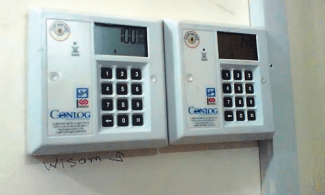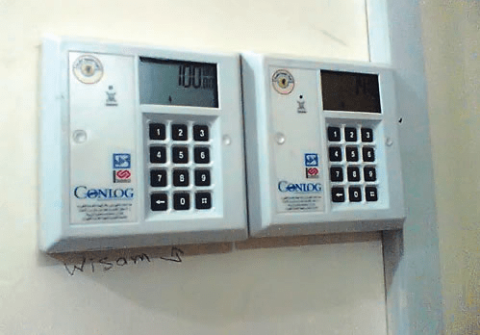
By September 30, it would be five years since the DisCos came into existence and their performance will be up for review.

Babatunde Fashola, Minister of Power, Works and Housing, has revealed that an understanding has been reached with the military to accept prepaid meters at their formations.
The minister, who was represented at the flag-off of the second phase of meter deployment by the Abuja Electricity Distribution Company (AEDC) on Wednesday, by Riskilla Sapki, Director of Distributions at the ministry, said he had impressed on the security forces the need to pay their electricity bills regularly and install prepaid meters at their barracks and other buildings.
Fashola also disclosed that the government had come up with an initiative, which will see the ministry handle the payment of electricity bills for other departments and agencies monthly.
“MDAs debt is reoccurring, and we are working out a mechanism to address this. This mechanism will ensure that MDAs payments are centralised with the ministry of power,” he said.
Speaking at the event, Ernest Mupwaya, Managing Director of the AEDC, said the meters that been deployed, and the firm’s new transformers are fitted with artificial intelligence. He explained that this would help the company note any case of energy theft:
“For those who resort to electricity theft, I think their days are numbered. The meters we are installing right now, our inspectors, even at a distance of 100 kilometres, can interrogate the meter. At night they can switch off the supply momentarily and if they see the lights are still on, then they know there could be a cable which has not passed through meters. Those are the safeguards we have put in place to protect investments.”
While lamenting that the firm rakes up losses in communities where meters are not installed, he disclosed that revenue shortfalls would still occur at a hundred per cent tariff collection rate.
“The losses are real, because where we don’t have meters, it is difficult to convince customers to pay because of estimated bills and you find that there are low payment levels. When you calculate the amount of energy you have supplied and how much you have realised, you see that the gaps are very high.
“The losses are real. We are conducting a regulated business, so there is transparency in the way we manage the business. They check our books – the Bureau of Public Enterprises. In fact, the regulator has to put a provision of how much we make; they check that the expenses are prudent.
“It is on the basis of that information that it is a common knowledge that areas where we have few meters, the losses are huge. The price at which we buy is already high. Even if we are to collect 100 per cent, there is still a gap, and that is real,” he stated.
By September 30, it would be five years since the DisCos came into existence and this means their performance will be up for review. However, one defence they would have against the government is its refusal to review the electricity tariff on four specific occasions.